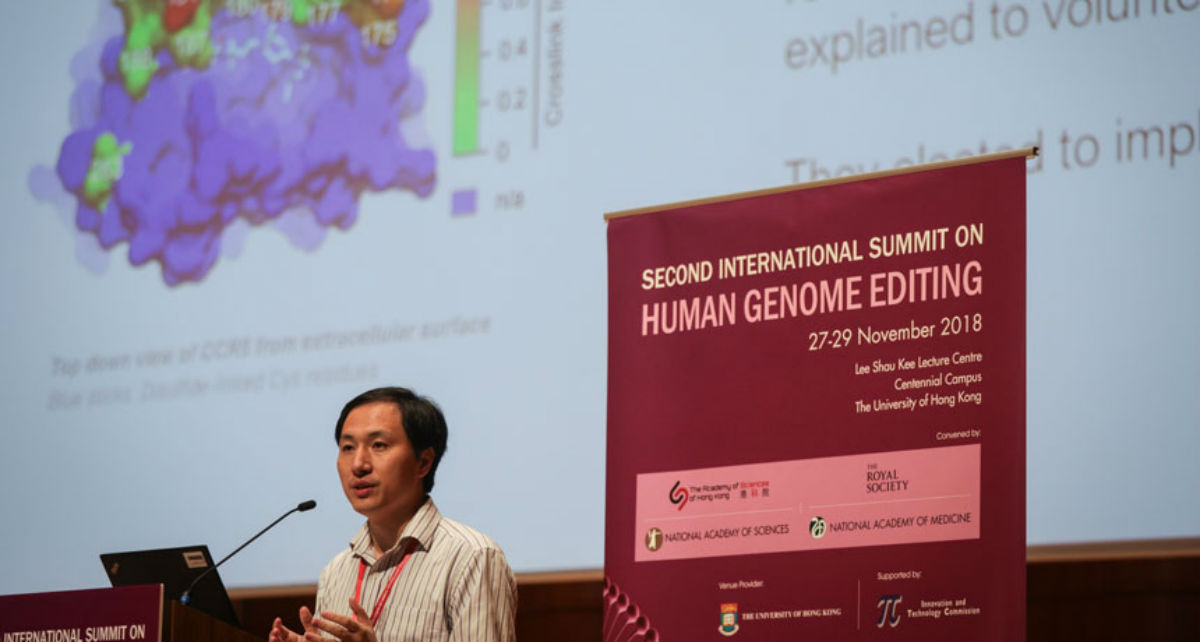
Did the Chinese government back the controversial gene-edited babies experiment?
More questions about the increasingly complicated scandal
He Jiankui
The plot thickens in the Case of the Chinese Gene-Edited Babies. Last November Chinese researcher He Jiankui announced at an international conference in Hong Kong the birth of two babies whose genome had been altered in genetic experiment using IVF embryos. International outrage ensued, with bioethicists and many scientists describing his work as unethical and dangerous.
Shortly thereafter He disappeared from public view. The government denounced his experiments and launched an investigation into how he obtained the embryos, who supported the research, whether the parents had given the consent and a number of other issues. The initial conclusion was that He was a rogue scientist who had acted on his own
But was the government complicit in He’s experiments? Some observers suspect that it was.
“I don’t think He Jiankui could have done it without the government encouragement to press ahead” with research they thought would merit a Nobel Prize, Jing-Bao Nie, a bioethicist at the University of Otago in New Zealand, told STAT, an online newsletter for the life science industry. “They want him to be the scapegoat, so everybody else can be vindicated.”
It is not clear how He organised and financed his controversial experiment. Some scientists suspect that government agencies colluded in his work; other think this unlikely. “I would be very surprised if government agencies officially funded the CRISPR babies project,” said Mu-ming Poo, director of the Chinese Academy of Sciences’ Institute of Neuroscience in Shanghai. “But it’s possible He used other government grants of his to fund the CRISPR babies work because there is some flexibility in how the money can be spent.”
He was a scientific celebrity who was feted by the government, another reason to suspect that his work had government backing. In 2017, He appeared on state television advertising a DNA-sequencing device that He claimed was his handiwork. The science ministry described it as a major achievement. “Not every piece of scientific breakthrough can make it onto television, let alone a major profile like this,” Jia Ping, a human rights lawyer, told STAT. “You’d need government agencies to back you up.”
Bioethicists say that the real lesson from this ethical debacle is the need to strengthen Chinese institutions. “While it’s important to penalize the individuals, the focus should not be why they behave so badly, but why good people do bad things, and why the system has let that happen,” said Nie. .
In another facet of the scandal, Nature has reported that topic of gene-edited babies was one of the most censored on Chinese social media last year. Posts describing He’s past achievements and his “historic breakthrough” in gene-editing were quickly deleted when the tsunami of international denunciation began.
Michael Cook is editor of BioEdge.
Creative commons
https://www.bioedge.org/images/2008images/FB_he_2345.jpg
china
gene-editing
- How long can you put off seeing the doctor because of lockdowns? - December 3, 2021
- House of Lords debates assisted suicide—again - October 28, 2021
- Spanish government tries to restrict conscientious objection - October 28, 2021
